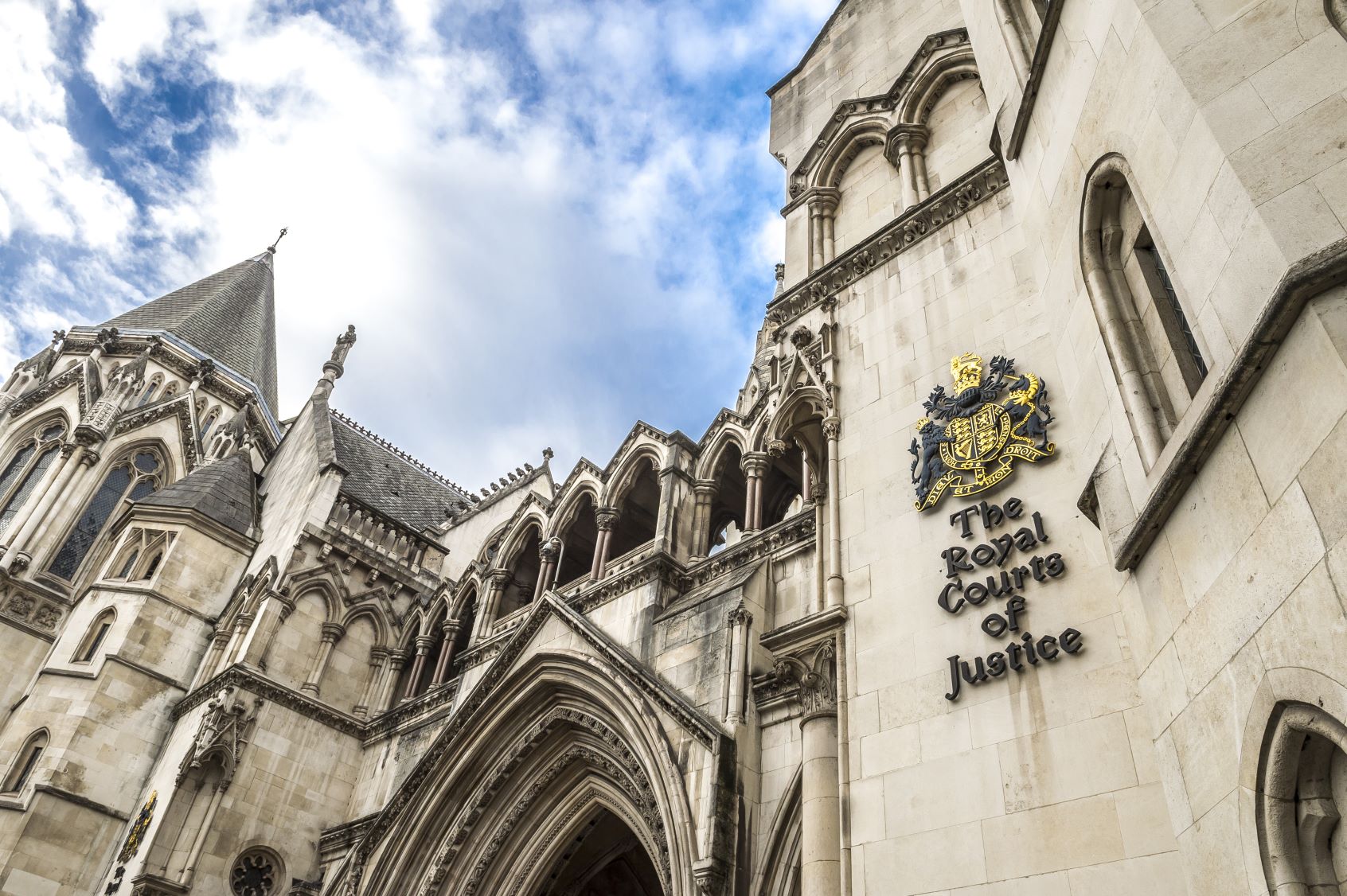When there is a demand for justice in the here and now, based on events long past, time takes on a new significance. The ongoing case of the Infected Blood Inquiry, investigating how patients were infected with HIV and hepatitis through transfused blood and blood products, is an apt illustration of this. Achas Burin discusses why sometimes, despite victims’ repeated calls for justice, the first and only real opportunity that society has to put things right can be years after the event.
In his letter from Birmingham Jail, Martin Luther King Jr wrote: “justice too long delayed is justice denied.” Justice and time are connected in complicated ways, and the law must grapple with the effects of time on the very possibility of doing justice. Time was the central theme in the Infected Blood Inquiry, an instance of a judicial inquiry into events many years past.
The interim report of the Inquiry quotes from Hamlet’s famous soliloquy. Hamlet recognises that everyone who ages must bear “th’oppressor’s wrong”, “the law’s delay”, and “the insolence of office”. The Infected Blood Inquiry report finds that victims of the contaminated blood scandal in the United Kingdom have suffered all of these: wrong, delay and the contempt of government. The report says: “Wrongs were done at individual, collective and systemic levels.” It urges: “Delay must be avoided. Time without redress is harmful. No time must be wasted in delivering that redress.” The report was published on 5 April 2023 but, as of July 2023, the UK government yet to decide whether it will implement its recommendations.
In 2022, the government formally acknowledged its moral duty to pay compensation, with a speech given in Parliament by Jeremy Quin, the Paymaster General. The government had, at that time, commissioned and received an independent report into compensation, which the Inquiry’s recent interim report endorses. However, other than making preliminary payments to the few victims left who live with infections, the government has not yet fulfilled the moral duty acknowledged by the Paymaster General. The preliminary payments did not represent full compensation. Children who lost parents and parents who lost children did not get even preliminary payments.
On 22 June 2023, 28 MPs called on the government to respond during a Parliamentary debate about the Inquiry. Despite this, the Paymaster General said that the government had made no decision yet. The reasons for this included the “complexity” of the issue and the “costs to the public sector”. Dame Diana Johnson MP replied that this was simply “not good enough”. The Inquiry itself has decided to reconvene in late July to hear evidence about what progress has been made by government.
An untimely investigation
The Infected Blood Inquiry investigated the infection of NHS patients with HIV and hepatitis. The infections occurred predominantly during the 1970s and 1980s. They arose out of treatment with blood (via transfusion) or clinical products derived from human blood (such as those used to treat clotting diseases). Approximately 380 children with bleeding disorders were infected with HIV. More than half of the children have since died. Effective treatments for the infections were not developed until decades later. The Inquiry did not begin until some four decades after the first infections – it started hearing evidence in 2019. Statutory Public Inquiries themselves have only been possible after the passage of a ground-breaking piece of legislation in 2005.
Whilst the government’s closing submissions to the Inquiry emphasised one effect of passing time on the possibility of doing justice, the experience of victims reflected another. The government, through its legal representatives, told the Inquiry that fairness demanded the Inquiry take account of the fact that government witnesses and civil servants now had little (or no) recollection of their actions, decisions and beliefs from decades ago. The Inquiry was told that social attitudes and norms, including toward patients’ rights and towards AIDS, were different then. It was told it should not, to borrow a phrase from an old legal case, “look at yesterday through today’s spectacles.”
Diverging perceptions and recollections
The testimony of infected and affected witnesses about the effect of time passing was quite different. Government witnesses have been able to forget this period of their lives in a way that those who suffered trauma have not. Victims’ response to the government’s submission that fairness requires the Inquiry to take ministers’ faded recollections into account is that the State is responsible for the delay. They asked for a public inquiry many times. Their calls for justice have been ignored or rebuffed by successive governments of all political colours since the 1970s.
Victims’ calls for justice have been ignored or rebuffed by successive governments of all political colours since the 1970s.
In his evidence to the Inquiry, Labour peer Lord Philip Hunt openly conceded that “there was a collective thinking across Government in relation to public inquires… they were to be generally resisted.” Government witnesses before the Inquiry, including Jeremy Hunt MP (once Secretary of State for Health and now Chancellor of the Exchequer), were firmly of the view that this was wrong. Jeremy Hunt said: “I am afraid that institutions and the State close ranks around a lie, sometimes, and I think that’s what has happened in this case.”
Given that previous governments ought to have known what to do, and that this government has admitted the moral case for compensation, why has little been done? Throughout the evidence before the Inquiry, a paradox appeared: government witnesses unhesitatingly accepted that good governments are transparent and accountable, that they admit to mistakes and remedy them. Yet witnesses were also aware that governments are exceedingly bad at admitting they are wrong. Government witnesses from all eras testified to their fear of admitting any wrong because it would be seen as weakness by the opposition party. Added to this, a permanent Civil Service was enculturated with “holding the line” defensively – even after a change of administration.
Another reason government is bad at admitting wrongdoing is a reluctance to spend. Among the factors that led to this tragedy occurring in the first place was a desperate scarcity of NHS funding. A scarcity of NHS funding was then used to justify withholding recompense. When giving evidence to the Inquiry, Andy Burnham said: “I think the real reason why the Department of Health’s position was against a public inquiry was because they thought that the costs of any compensation that was decided by a public inquiry would have to be met from the NHS’s budget and that was the heart of it.” None of this was so bluntly stated to victims of the infected blood tragedy prior to the Inquiry, despite their repeated appeals to government, even though all government witnesses unreservedly said they believed in transparency. When put so clearly, it is not an impressive argument. It amounts to recognition that to compensate the deserving is robbing Peter to pay Paul.
A statutory Public Inquiry is an unusual forum, quite unlike a court. Inquiries are debarred from making findings of civil or criminal wrongdoing. Their proceedings are non-adversarial, unlike a court. These features made possible the candidness of witnesses who gave evidence on behalf of the State, and inspire redress and reform rather than recrimination. A statutory inquiry thus has unique potential precisely because it is unlike a traditional court. The corollary of this is that an Inquiry’s powers to compel are less than a court’s. Whereas a court order for compensation creates an enforceable debt, implementing an Inquiry’s recommendations in full requires voluntary action from a government genuinely committed to accountability.
Better delayed than never?
For some victims of this tragedy, particularly for individuals who have died, delay means they will not see justice done. This is not the same as saying that nothing further can or should be done to ensure similar wrongs are not repeated. It is not the same as saying that justice is impossible for those touched by their deaths. Justice delayed is not always justice denied; sometimes it is merely justice tarnished.
Justice delayed is not always justice denied; sometimes it is merely justice tarnished.
When prevailing attitudes mean that society cannot see wrongs for what they are at the time those wrongs are done, delayed justice might be the only kind of justice available. It might take a constellation of societal and legal changes before a valid complaint can be heard at all, still more with the sympathy it deserves. Above all, it is difficult to remonstrate with the State in order to secure justice when the primary dispenser of justice or compensation is the State itself.
In the case of the infected blood scandal, the constellation of changes needed for justice may at last be in place. They include: the passage of the ground-breaking Inquiries Act of 2005 and the convening of this Inquiry under the Act, a reduction in homophobia and stigma around AIDS, and a societal shift toward increased patients’ rights over traditional medical paternalism. To the extent it can still be done, justice might finally be possible. Contrary to the government’s closing submissions to the Inquiry, sometimes looking at yesterday through today’s spectacles is exactly what justice demands.
All articles posted on this blog give the views of the author(s), and not the position of LSE British Politics and Policy, nor of the London School of Economics and Political Science.
Image credit: Shutterstock







